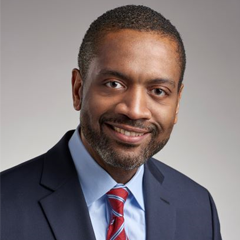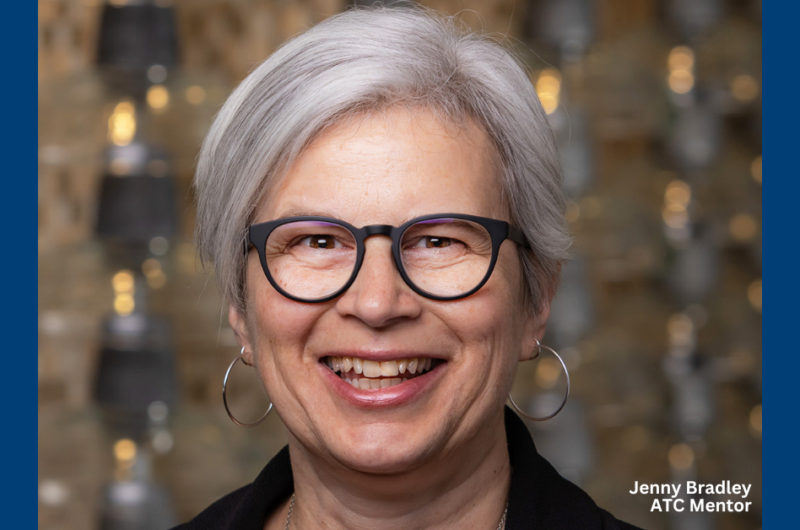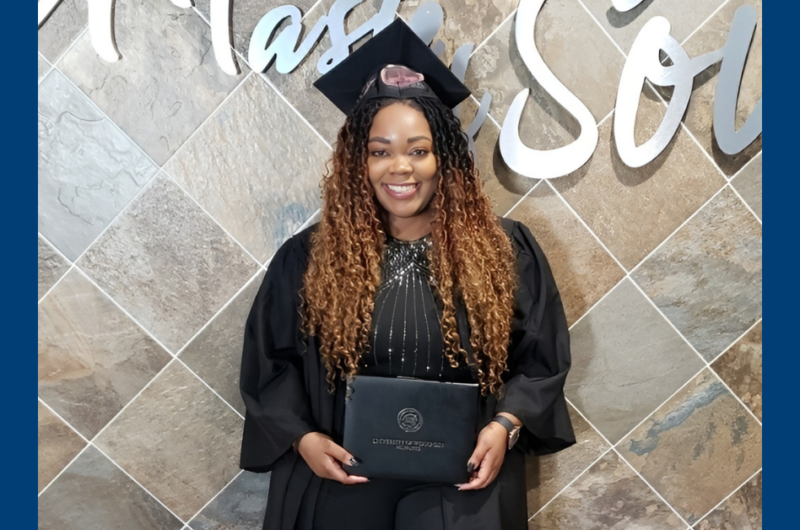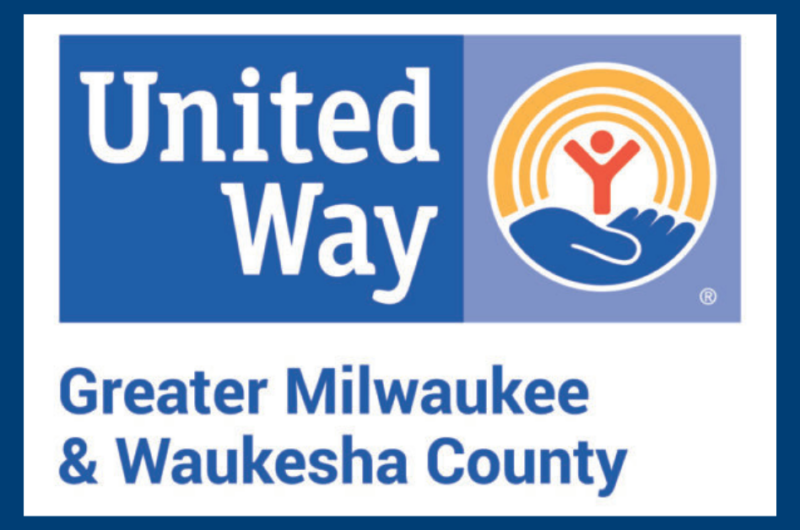 College Possible Wisconsin welcomes Rick Dillon as our next board chair. Dillon is a Milwaukee native and an MPS alumni, graduating from Rufus King High School. He is cum laude graduate of Marquette University’s Honors Program and the College of Business Administration with a bachelor’s degree in accounting. Rick has an MBA from the Kellogg School of Management at Northwestern University. Among his many accolades and accomplishments, Rick has most recently been honored as the 2019 Milwaukee Business Journal’s CFO of the Year. He is currently the Senior Vice President and Chief Financial Officer for Aramark Uniform Services.
College Possible Wisconsin welcomes Rick Dillon as our next board chair. Dillon is a Milwaukee native and an MPS alumni, graduating from Rufus King High School. He is cum laude graduate of Marquette University’s Honors Program and the College of Business Administration with a bachelor’s degree in accounting. Rick has an MBA from the Kellogg School of Management at Northwestern University. Among his many accolades and accomplishments, Rick has most recently been honored as the 2019 Milwaukee Business Journal’s CFO of the Year. He is currently the Senior Vice President and Chief Financial Officer for Aramark Uniform Services.
I recently sat down with Rick and talked about his college journey, how it shaped his drive and passion, and what his vision is for the future of College Possible Wisconsin.
How did you first learn about College Possible?
I first learned about College Possible from David Gay, the prior board chair. I moved back to Milwaukee about six years ago. David and I were talking, and I was looking for ways to reconnect with the community. I was born and raised here but lived a decent chunk of my life away. David invited me to the Dream Big Dinner and it was there, hearing the inspiring scholar testimonies, that I was motivated to learn more. I decided that this was an organization that resonated with my background and was something I wanted to support.
I am a graduate of Rufus King High School. Born and raised in the inner city of Milwaukee. I am also a first-generation college student. Everything about College Possible lines up with my experience. It was organizations like College Possible that I leaned on to get to and through college. It was inspiring to see this organization that seemed to understand my journey and I wanted to make a difference.
What about College Possible is so meaningful to you?
My two older brothers were at Marquette and I wasn’t really given a choice. *chuckles* But, it fit in community-wise with me staying close to my support systems including organizations like INROADS and NABA (Nation Association of Black Accountants). This support and becoming a part of EOP (Educational Opportunity Program) at Marquette made my transition to college and progression through college much easier. A lot of people underestimate the importance of surrounding yourself with that level of support, that positivity, that encouragement that this is possible. Not only that you can do this, but you can excel in it. That voice, if you can get it from all directions including home, and for me spiritually, there is no greater power. College Possible provides a voice for our scholars.
What have you learned during your time on the board as a member at large?
I have learned the importance of being present and visible in the community. We can’t be as effective for our students if we don’t have a strong enough presence in the community. Presence leads to support. Our name needs to be known. Our scholar’s stories need to be known. From a success perspective, to engage both at the corporate level and at the individual level, we must get those messages and stories out there. I mentioned the Dream Big dinner. After attending, I was sold. I can tell you, each of the Dream Big Dinners, those testimonies are getting bigger and bigger. This last one was amazing. You can’t sit there and not want to support this organization. If we can get more and more people knowledgeable about this organization and most importantly the scholars we support, that’s what will lead to growth in our region.
As a board member, accepting that challenge to be that voice in the community is very important. To have it be an organization that you speak to, that you carry with you as an example of your involvement but also what we should be doing for our communities. In 2020, when the racial justice movement took off, everyone was awakened to the need and started seeking organizations to support, most of which have been doing this work long before George Floyd. They became places where people were looking to get involved. In tragedy there is opportunity.
I think access, which is a huge tenant of College Possible, will bring equity. I often hear frustrating conversations about equity and statements like “we can’t find people like you” and “they are not like you”. With every opportunity, I tell people my story. I wouldn’t have gotten into any college but for programs like College Possible. My high school work didn’t match my ability. My SAT scores were dismal, yet I graduated from the Marquette Honors Program and College of Business with honors, I needed encouragement (those voices I mentioned earlier), to not let me look at those scores and think “I can’t do this, I am not going to get in”, but to give me the desire and encouragement to know yes you can. That’s equity, not looking like the average student, not having the average college entrance background but that does not mean you do not have the ability to be successful. It’s that equity story that a lot of people don’t get.
A lot of people are shocked when I tell them my story. The more of our scholars that can come through and tell a similar story, people will begin to understand. People like me don’t make it through unless we have educational equity. That’s the importance of it. I carry that as a testimony that this is what this is about. I wouldn’t be sitting in this board room, the CFO of a company but for an educational equity opportunity. When these conversations became front and center over the last few years, equity and access became a place where people and corporations look to get involved, my hope is that that doesn’t fade.
Everyone works hard for their circumstances. If your circumstances do not match mine, then hard is relative. I’d argue that the “hard” our scholars face certainly outweighs what I had to overcome and what most people consider hard. Outweighs a lot of college entrants hard and that’s an equity conversion.
What are the greatest challenges before College Possible Wisconsin?
Continuing to get active participation in AmeriCorps because that is the foundation of the model. Encouraging our AmeriCorps service members. Building that stream of young people to keep coming and serving. Continuing the vision that started College Possible and expanding that vision as the environment changes and the needs change.
What are the greatest assets and opportunities for College Possible Wisconsin?
I think there are more ways to bring individuals to be more active. I am active through the board but allowing more access to see our scholars. What we are doing with KOHLER, that program marries corporate and individual. When scholars are among employees, then the story gets told. If we can get more and more individuals who know a scholar, who see their curiosity, their ability, their drive and their ability to thrive – that connection that doesn’t come through from reading a pamphlet – that’s the key to our program expansion. A program like the Kohler Scholars Program brings scholars into contact with individuals in the workplace. They are the message. They are the story. I can shout it from the rooftops, but you put a scholar there and say listen, interact, see their drive and understand their story, that’s how we build more champions for this work. There’s a song I listen to sometimes and it says “you don’t know my story; you don’t know what I’ve been through. I may not look like what I have been through” and I hone in on that. I may not look like I grew up on 20th and Center today, but you have no idea. That’s the piece that putting a scholar in front will awaken people to both the need, the possibility in our scholars, and to what College Possible has been doing.
What are you most excited about as you begin your term of service as board chair?
I’d like to see the awareness expand. I’d like to see the KOHLER program expanded as a blueprint for increasing awareness, expanding who we are and where we touch the community. I‘d like to see more college partners, an expanded college presence and more scholars being successful. That’s the goal. Whatever we can do at the national level to help the model, I want to be a part of that as well.
As an organization, we must partner more strongly with the other groups at these universities. We have to be stronger partners on the through piece of scholar support. I see that at Marquette. We do a great job of getting scholars to college but can be better at getting them through. That means staying connected, raising awareness on campus, and connecting with the other support groups working with our scholars. If a student is in one of the other organizations on the campus, the College Possible piece is lost. For example, at Marquette, there’s Urban Scholars or EOP, we must follow the students. We must follow those scholars vividly so that those organizations view these students as College Possible scholars first.
What is your “Why?”
I have a responsibility. I can’t have benefited from organizations like College Possible, make it through college, find success and ignore those behind me. I have a responsibility and so that becomes my passion. This organization resonates so much with my background that I want to give a student similar encouragement and opportunity and capitalize on what is possible. There are so many distractions right now, if we can give a student the ability to focus on the possibility of going to college, surround them with encouragement, and shield them from everything going on around them, then that’s why. I feel like I had a shield around me of people telling me what is possible and what I can do. I want to be a part of creating that for the scholars as they come through College Possible. If ever our students needed a shield, it’s now.


